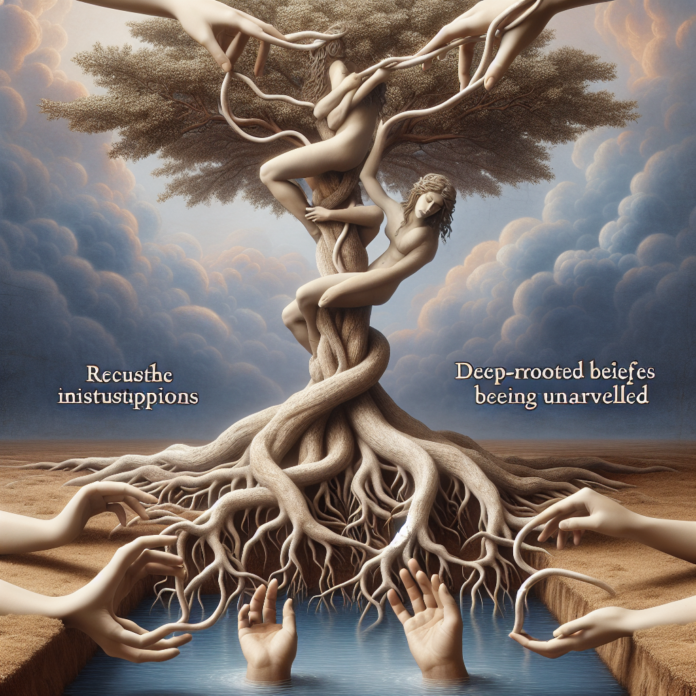Unpacking the Fallacies Embedded in Pro-Life Dogma
In the divisive arena of reproductive rights, the pro-life movement is often lauded by its adherents as a bastion of ethical clarity, steadfast in their defense of the unborn. However, behind the seemingly noble veneer of protecting life lies a tapestry of fallacies and contradictions that undermine the movement’s moral high ground. A closer examination reveals that the pro-life agenda is often more aligned with maintaining traditional hierarchies of power than with upholding the sanctity of life, challenging all who seek to champion progressive and inclusive values.
Historically, the pro-life movement gained significant traction in the United States with the Roe v. Wade decision in 1973, which federally legalized abortion. The ruling was a watershed moment for women’s rights, offering a new path towards bodily autonomy. However, for decades since, the pro-life movement has sought to reverse this gain, framing their efforts as a moral crusade against what they perceive as the erosion of ethical values. This framing is deeply rooted in the beliefs of Catholic conservatism, which has historically advocated for traditional gender roles and resisted progressive social change.
One major fallacy of the pro-life argument is its reliance on the sanctity of life as an absolute principle, selectively applied. If the movement unequivocally valued all life, it would logically follow that the same fervor used to protect the unborn would be mobilized to combat issues such as gun violence, capital punishment, and systemic poverty, which claim thousands of lives annually. Instead, the pro-life platform often remains conspicuously silent on these matters, revealing a selective application of their core principle. This inconsistency suggests that the pro-life agenda may be less about protecting life and more about controlling women’s reproductive choices, perpetuating traditional power structures that prioritize patriarchal narratives.
Moreover, the narrative of the pro-life movement frequently overlooks or undervalues the autonomy and well-being of the pregnant individual. This perspective fails to recognize the complex spectrum of circumstances that influence a person’s decision to terminate a pregnancy. Coercively prioritizing potential life over the existing life of the woman disregards the nuanced challenges she may face, whether they are economic, health-related, or personal. Such a stance can inadvertently dehumanize women, reducing their rich and multifaceted identities to mere vessels of procreation.
Recent legislative developments illustrate the potency of these fallacies. In 2022, the U.S. Supreme Court’s decision to overturn Roe v. Wade in the case of Dobbs v. Jackson Women’s Health Organization further accentuated the underlying motivations of pro-life activism. This landmark ruling not only stripped away fifty years of federal protection for abortion rights but also triggered a cascade of state-level restrictions, disproportionately affecting marginalized communities. This rollback of rights underscores a regressive agenda that contradicts the progressive strides made towards gender equality and social justice.
In the context of Catholic conservatism, the pro-life rhetoric is often shrouded in religious doctrine, conflating church teachings with public policy. While religion can provide personal solace and guidance, its imposition on secular governance blurs the line between personal belief and public law, eroding the constitutional foundation of separation between church and state. It is worth noting that while Catholicism staunchly opposes abortion, it also promotes a multitude of social teachings that emphasize compassion, charity, and the protection of the vulnerable—principles that, if fully embraced, could potentially align more closely with progressive social policies than with the punitive approaches favored by many pro-life advocates.
Furthermore, research has shown that comprehensive sex education and accessibility to contraception—tenets often supported by progressive thought—are the most effective means of reducing the incidence of unwanted pregnancies. Yet, these solutions are frequently antagonized by pro-life factions, suggesting an aversion not to abortion per se, but to the empowerment of individuals with knowledge and choice regarding their reproductive health. This opposition to preventative measures not only undermines public health but also perpetuates cycles of poverty and disenfranchisement, counterintuitive to the purported aim of valuing life.
The fallacies embedded in pro-life dogma ultimately pivot around an ideological resistance to change and progress. By upholding traditional norms at the expense of human rights and dignity, the movement seems entrenched in a narrative of control rather than compassion. In parsing through these contradictions, it becomes evident that a true commitment to life must encompass a broader vision—one that transcends the narrow confines of birth and uplifts the dignity, autonomy, and agency of all individuals throughout their lifespans.
As society evolves, it is incumbent upon those who champion human rights to challenge the inconsistencies and hypocrisies of entrenched dogmas. Rather than being beholden to antiquated paradigms, progress must be forged through inclusive dialogue, evidence-based policies, and a staunch commitment to equality. Only then can we aspire to build a world where the sanctity of all life, in its myriad forms and manifestations, is genuinely respected and protected.
